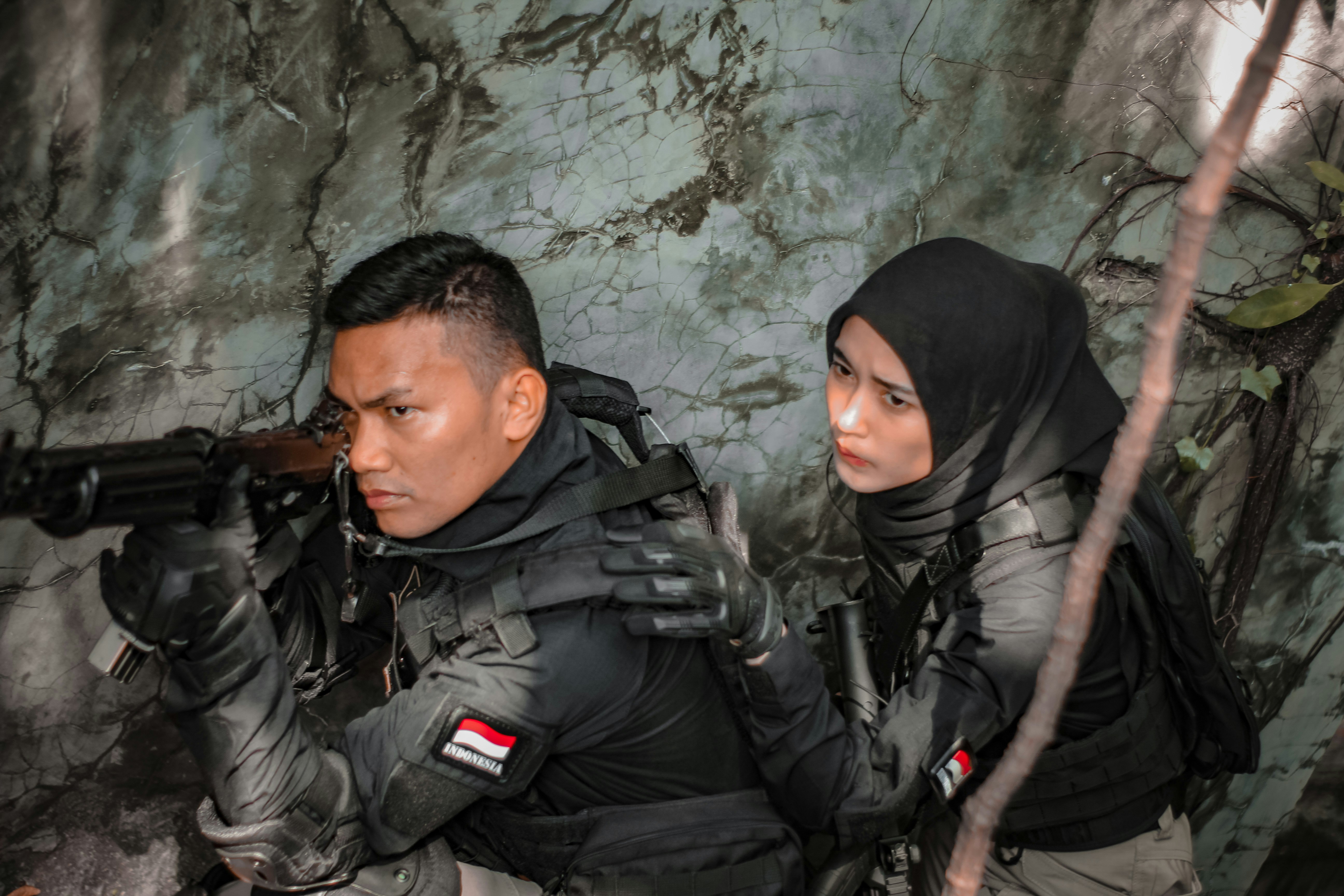Introduction to Balikatan Exercises
The Balikatan exercises represent a significant facet of the military collaboration between the United States and the Philippines, aimed at improving defense capabilities and fostering strategic cooperation. Originating in 1981, these joint exercises have evolved to address various regional challenges, reinforcing the longstanding relationship between the two nations. The term “Balikatan” translates to “shoulder-to-shoulder” in Tagalog, embodying the spirit of partnership and mutual assistance that defines these military operations.
These exercises serve multiple purposes, primarily focusing on enhancing the tactical and operational readiness of both countries’ armed forces. The Philippines has long been a key ally of the U.S. in the Asia-Pacific region, and Balikatan serves as an important platform for training, expertise sharing, and the development of interoperability between their military forces. Through joint training exercises, U.S. forces provide valuable resources and knowledge to Philippine troops, which is paramount in addressing local security threats, including terrorism and natural disasters.
Furthermore, Balikatan exercises underscore the commitment of both the U.S. and Philippine governments to regional stability and security. By engaging in these collaborative efforts, the two nations not only enhance their bilateral military relations but also contribute to a broader security framework in the Asia-Pacific region. The strategic significance of these exercises extends beyond mere military cooperation; it fosters a sense of unity in facing common threats and challenges that pertain to national and regional stability. As geopolitical dynamics shift, the importance of maintaining such alliances remains critical in ensuring peace and security in the Philippines and the surrounding areas.
Role of U.S. Special Forces
The U.S. Special Forces play a pivotal role during the Balikatan 2025 exercises in the Philippines, showcasing their expertise in a range of operational capabilities. These elite units are specifically trained to operate in diverse environments, allowing them to engage effectively in counter-terrorism, humanitarian assistance, and disaster response missions. Their involvement in Balikatan emphasizes not only their strategic objectives but also aims to strengthen military ties with Philippine forces.
One key aspect of the U.S. Special Forces’ role is their unique training methods. They employ advanced techniques that are tailored to enhance the operational proficiency of both U.S. and Philippine troops. Joint training sessions often focus on aspects such as advanced weaponry, tactical movement, and situational awareness, ensuring a high level of synergy between the two forces. This collaborative approach serves to prepare troops for various scenarios they might encounter during actual missions, particularly in the context of regional tensions that have previously threatened the stability of the Philippines.
Additionally, the integration of U.S. Special Forces with Philippine units fosters a spirit of cooperation and mutual support. Through joint exercises, Filipino troops gain valuable insights into special operations tactics, enabling them to enhance their own responses to security challenges. The training also reflects a commitment to the defense of the Philippines, bolstering confidence among local populations regarding their national security. The combination of unique capabilities and training methodologies underlines the strategic significance of U.S. Special Forces within the realm of Balikatan 2025 and their essential contribution to the overall security framework in the region.
Strategic Importance of the Philippines
The Philippines holds a pivotal position in the Indo-Pacific region, serving as a critical hub for geopolitical interests among major global powers, particularly the United States and China. Due to its geographical location, the archipelago lies along essential maritime routes, which facilitate the movement of goods and military assets. Consequently, the Philippines plays a significant role in regional security dynamics and the broader framework of U.S. defense strategies aimed at countering potential threats and ensuring stability.
The United States has maintained a longstanding alliance with the Philippines, characterized by mutual defense agreements and joint military exercises. This partnership exemplifies the strategic importance of the Philippines as a forward operating base, essential for enhancing U.S. military readiness and responsiveness in the Indo-Pacific theatre. Through initiatives such as Balikatan, which translates to “shoulder-to-shoulder,” both nations bolster their military collaboration, demonstrate interoperability, and engage in humanitarian assistance projects, underscoring their commitment to regional security.
Moreover, the Philippines’ involvement in these exercises has significant implications for deterrence strategies against aggressive maneuvers in the South China Sea, where tensions have persisted over territorial disputes. By participating in Balikatan, the Philippines not only reinforces its defense capabilities but also signals to regional allies and adversaries the resolve of the U.S. and the Philippine government to uphold international law and maritime freedom.
In essence, the Philippines, through its strategic alliances and active military engagements like Balikatan, is integral to promoting a stable and secure environment in the Indo-Pacific region. As global dynamics continue to evolve, the significance of the Philippines within the larger context of U.S. defense strategies remains paramount, illustrating its unique role in fostering regional cooperation and resilience amid rising challenges.
Overview of Balikatan 2025
Balikatan 2025 represents a significant annual bilateral exercise conducted between the United States and the Philippines, aimed at enhancing interoperability and readiness of both nations’ armed forces. This year’s incarnation is set to take place over a two-week period, featuring a series of diverse, robust activities designed to strengthen military cooperation while addressing regional security challenges.
This iteration of Balikatan will see the participation of thousands of service members from both nations. Notably, U.S. Special Forces will join their Philippine counterparts, engaging in various exercises that entail not just traditional warfare training, but also humanitarian assistance and disaster relief operations. Such multifaceted training is essential in fostering a deeper understanding between the two military establishments, thereby enhancing their capabilities collectively.
A key component of Balikatan 2025 will be the introduction of advanced technology and strategies. Participants will engage in exercises utilizing both live-fire training and simulation-based scenarios. The focus this year is on implementing innovative approaches to command, control, and logistics, which aim to modernize the Philippine Military’s operational effectiveness. Moreover, joint cyber defense exercises will also be a highlight, as both nations recognize the increasing importance of cyber warfare in contemporary conflicts.
The anticipated outcomes of Balikatan 2025 include improved tactical proficiency, deeper strategic ties, and a stronger commitment to mutual defense between the Philippines and the United States. By engaging in such exercises, both countries are reaffirming their commitment to regional stability and security while simultaneously preparing for any potential humanitarian crises that may arise in the future. Ultimately, Balikatan 2025 reflects not just military collaboration but a partnership that underscores the importance of shared values and collective defense in the Asia-Pacific region.
Challenges Faced by Special Forces in the Philippines
The deployment of U.S. Special Forces in the Philippines for military exercises such as Balikatan 2025 presents numerous challenges that must be addressed for effective operations. One of the primary environmental factors includes the diverse and often challenging terrains found in the archipelago. These natural landscapes vary from mountainous regions to dense forests and urban environments, each posing unique tactical difficulties. The humid tropical climate can also affect equipment performance and troop endurance, necessitating adjustments to operational plans for wellness and readiness.
Cultural considerations play a crucial role in the success of Special Forces missions in the Philippines. The cultural landscape is rich and complex, with numerous ethnic groups and local customs. Understanding these dynamics is vital as they inform local perspectives on foreign military presence and operations. Building trust and rapport with local populations is essential, particularly in areas where historical tensions may exist. Cultural awareness training for U.S. troops contributes to navigating these sensitivities, ultimately fostering cooperation between American forces and Filipino communities.
Collaboration with local military and law enforcement is another significant challenge that U.S. Special Forces must navigate. The Philippine Armed Forces have their distinct operational protocols and communication styles, which require a well-coordinated approach for joint missions. This collaboration is critical, especially given the complex security dynamics within the region, including threats from various insurgent groups. Effective collaboration not only enhances operational success but also aids in capacity-building for local forces, facilitating a sustainable security environment in the long run.
Local Response and Impact
The deployment of U.S. Special Forces to the Philippines for Balikatan 2025 has generated a range of responses from various sectors of Filipino society. Public opinion regarding this military collaboration generally reflects a mix of support and concern. On one hand, proponents argue that the presence of American troops enhances national security and strengthens the capabilities of the Armed Forces of the Philippines (AFP). Many residents perceive this partnership as a crucial step towards combating regional threats, particularly in light of escalating tensions in the South China Sea and the ongoing challenges posed by insurgent groups within the country.
The Philippine government has expressed strong support for the Balikatan exercises, emphasizing the importance of bi-lateral cooperation in achieving mutual security objectives. Leaders view these engagements as vital not only for military readiness but also in fostering diplomatic relations with the United States. Exercises like these are seen as platforms for knowledge transfer and capacity-building for the Filipino military personnel, thus benefiting the defense landscape of the Philippines as a whole.
<pdespite 2025="" a="" about="" accompany="" activity="" american="" and="" appreciate="" apprehensions="" are="" around="" as="" balikatan="" bases="" benefits="" both="" business="" communities="" complex="" consider="" contemporary="" context.<pas about="" and="" as="" be="" civil="" collaborations="" community="" concerns.
Training Focus Areas for Balikatan 2025
Balikatan 2025 represents a pivotal opportunity for U.S. and Philippine forces to enhance their cooperative capabilities through targeted training focus areas. As they prepare for the joint exercises, several crucial domains are identified, including counter-terrorism, humanitarian assistance, disaster response, and joint operations. Each area holds specific significance that fosters increased operational efficiency between the allied nations.
Counter-terrorism training will utilize real-world scenarios to enable both U.S. and Philippine forces to develop robust strategies against evolving threats. This collaboration is vital in addressing the persistent presence of terrorist groups in various regions of the Philippines, thus contributing to national and regional stability. The advanced techniques and intelligence sharing during these training sessions will heighten both forces’ operational readiness.
Humanitarian assistance is another critical component that will be emphasized during the Balikatan exercises. The Philippines frequently faces natural disasters, and this training will allow military personnel to effectively respond to crises, ensuring swift aid delivery and assistance. By practicing these scenarios, U.S. and Philippine forces will build capacity in logistics, medical support, and civil-military coordination, ultimately leading to more effective responses during actual events.
Disaster response training will focus on improving interoperability and communication between the two military organizations. Given the geographic location of the Philippines, which is prone to typhoons and earthquakes, this training is essential. Conducting joint exercises allows both forces to refine their protocols, ensuring that they can efficiently coordinate their resources and capabilities in times of need.
Lastly, joint operations training will encapsulate the integration of various military branches and specialties from the Philippines. This holistic approach fosters comprehensive military engagement, enhancing overall collaboration and effectiveness in addressing threats and challenges within the region.
Historical Successes of Balikatan Exercises
The Balikatan exercises, a robust framework for U.S.-Philippines military collaboration, have a storied history marked by significant achievements since their inception. These joint exercises reflect a commitment to enhancing military interoperability, sharing tactical know-how, and addressing regional security challenges. Historical case studies from previous years illustrate how the allied forces have successfully conducted a variety of operations that not only bolster defense strategies but also contribute to humanitarian efforts and disaster response capabilities.
One noteworthy success occurred during the 2020 Balikatan exercise, where joint forces effectively coordinated a response to a simulated natural disaster scenario. The Philippines, prone to various natural calamities, benefited from the integrated training focused on rapid assessment, logistics, and recovery operations. This collaboration helped enhance rescue operations, demonstrating the value of inter-military cooperation. Furthermore, such drills fostered a sense of preparedness that extends beyond military training, creating real-world benefits for Filipino communities in times of crisis.
Additonally, previous joint live-fire exercises have showcased the tactical advancements achieved through Balikatan. These operations not only improved individual and collective combat readiness among U.S. and Philippine troops but also established a foundation for sharing best practices. Lessons learned from each iteration have driven innovation in tactics and techniques, and adjustments based on feedback from all participants have become integral to future planning.
The focus on improving communication technologies and strategies during these exercises has been particularly instrumental in bridging operational gaps. As the geopolitical landscape evolves, the importance of maintaining a strong U.S.-Philippines alliance has never been clearer. Balikatan exercises serve as a testament to the mutual commitment of both nations to ensuring peace and stability in the region while honing their collective capabilities.
Future of U.S.-Philippines Military Cooperation
The future of military cooperation between the United States and the Philippines remains a critical component of regional stability in Southeast Asia. As global dynamics shift and new security challenges emerge, both nations are expected to adapt their cooperation strategies to enhance collective security. The long-standing partnership is poised to evolve further as the geopolitical landscape becomes increasingly complex, especially with evolving threats from territorial disputes and non-state actors in the region.
One potential initiative that may take shape is increased joint training exercises beyond the scope of Balikatan 2025. These exercises not only enhance interoperability between the U.S. and Philippine armed forces but also serve to prepare both nations for a myriad of scenarios, including humanitarian assistance and disaster relief (HADR) operations. The Philippines, located along vital maritime routes, is essential to U.S. strategic interests, and thus, fostering a well-prepared military force is integral to national security for both parties.
Additionally, the introduction of advanced military technologies and defense capabilities stands to bolster the Philippines’ military readiness. The U.S. can play a pivotal role in this area through military sales and technology transfers. By facilitating access to modern equipment and training for Philippine forces, the U.S. can foster a more resilient military posture against increasingly sophisticated threats posed by regional actors.
Moreover, the continuation of strategic dialogues between defense officials from both countries can help identify emerging challenges and opportunities for collaboration. Issues such as cyber security, intelligence sharing, and counterterrorism operations may become focal points for future agreements, enabling both nations to tackle shared threats effectively. Continuous engagement and mutual commitment will be essential to the partnership, ensuring that it remains a cornerstone of security in the Philippines and the broader region.
In conclusion, the trajectory of U.S.-Philippines military cooperation beyond Balikatan 2025 appears promising. With a strong foundation already established, both nations have opportunities to adapt and innovate strategies that will fortify their partnership against emerging challenges in the Asia-Pacific region.





Leave a Reply